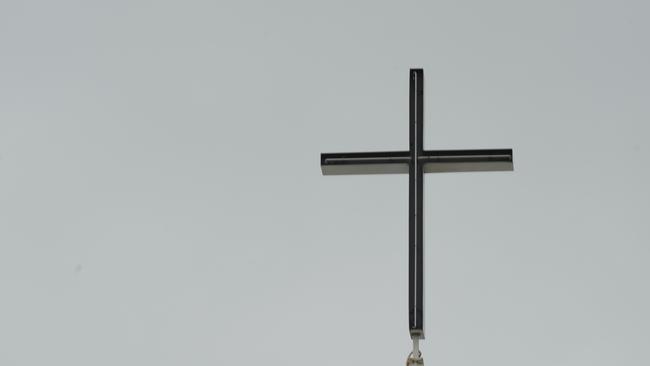
Families are expected to submit their children to beliefs formed in a radical sex movement of the 1980s. Under draft legislation in Victoria, faith schools could be compelled to employ people who reject God but believe in queer ideology.
The religious discrimination bill seeks to provide a small space in Australia where people who believe in the reality of birth sex, the naturalness of heterosexual reproduction and the right to express the truth about it can do so without being hauled before an anti-discrimination commission or hunted by activists.
The promotion of queer ideology is not about gay rights in the main. It is a movement that takes sex and sexuality to the radical left where biological fact is rejected and dissenters are treated with contempt. Gay liberationists and lesbian feminists have been targeted by queer activists, as well as people of faith.
The religious discrimination bill reasserts the primacy of truth in the realm of politics. It is a necessary intervention for a progressive society. It protects freedom of thought, speech and belief from the aggressive tactics of activists who impose censorship, compel people to express untruth and subject children to radical queer ideology in schools.
The government needs to provide examples of harm when defending the bill. It can draw on local examples and international precedent. To be a good sport, it also should join in the left’s favourite game, hysterical hypotheticals. Activists have drummed up a hypothetical patient with HIV-AIDS, an imaginary IVF client and a single mother from a parallel universe to make their case against the religious discrimination bill. The reality is plainer.
Nearly 400 people are killed every month for following Christ. On average, 80 places of worship are destroyed every week. More than 340 million Christians endured high levels of persecution last year. The annual World Watch List produced by charity Open Doors reveals the shocking reality of religious persecution. Yet in a world where hatred of Christians is severe and increasing, Australia does not have a national law dedicated to protecting people of faith.
We witnessed what extremists do to dissenters during the same-sex marriage debate. The Anglican Archbishop of Sydney reported unprecedented abuse of Christians. At the University of Sydney, activists set upon a multi-faith group having a food stall to discuss the No campaign. The Australian reported that churches in Melbourne were vandalised with threats to attack same-sex marriage dissenters and “crucify No voters”.
Former prime minister Tony Abbott was violently attacked in Hobart by a man wearing a Yes badge. The man later identified as Tasmanian DJ Astro Labe said to Seven News he believed in human rights and that was why he hated Abbott. He offered insight into the inner thinking, or lack thereof, of people who use violence against political opponents: “I’m never going to get the opportunity to headbutt that c..t again … so I seized a moment.”
The threats to people of faith were physical and financial. Activists called for the deregistration of GP Pansy Lai after she voiced support for traditional marriage. A business owner fired a young Christian woman after seeing that she posted support for the No campaign on social media.
In recent years, much anti-Christian abuse in the West has been justified by appeal to queer politics. It takes a narrow mind to view the broad sweep of religious freedom through the lens of a single ideology. Freedom of religion is fundamental to the development of civilisation and the modern open societies where pluralism of belief thrives. The religious discrimination bill is an effort to enshrine diversity of belief within the limits of the law and recognise the legitimacy of non-belief, too.
Despite good intentions, there is significant risk the bill will fail. It could be delayed by Labor and Liberal wets determined to ensure it will not become law before the federal election next year.
That is despite religious freedom being part of the successful Coalition campaign at the 2019 election. It could be undermined by hostile MPs who move amendments that reduce it to mere motherhood statements. Or it could simply be voted down in the house, but that would pose electoral risks for Labor, as it has already learned.
If Labor, the Greens and the Liberal wets unite to destroy the bill, believers will receive second-class treatment under discrimination law when their deeply held faith is attacked by radical activists. The government wants the faithful to have the chance to defend themselves against radicals who use discrimination commissions in vexatious complaints designed to intimidate dissenters and cow free thinkers. The bill would level the playing field and give Australians the chance of a fair fight when zealots attack with the weight of taxpayer-funded commissions behind them.
The free world recognises freedom of religion as a fundamental human right. The religious discrimination bill promises greater equality of treatment by sharing with the faithful those rights enjoyed by their opponents under discrimination law. It represents progress by protecting the diversity of belief that enables public debate to thrive in liberal democratic societies. It will create greater accountability for inciting violence against citizens who dissent from radical ideology. It provides for the flourishing of freedom as a universal human right. It is a mature approach to equality and deserves support.




The religious discrimination bill will restore the rights of workers, preachers and parents to hold a world view that differs from extreme ideology. In Australia and across the Western world, activists emboldened by revamped discrimination law are compelling people to conform to queer ideology so radical that many on the left reject it.